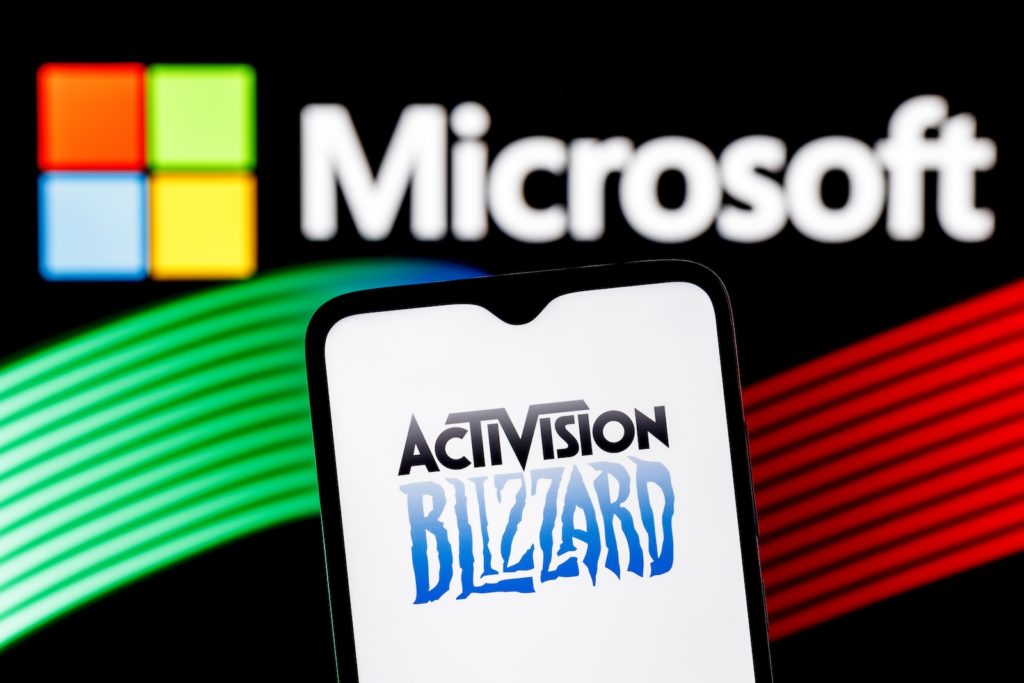Last month, technology giant Microsoft acquired gaming giant Activision Blizzard in a landmark $69 billion deal that represents both Microsoft’s biggest ever acquisition and the biggest deal in the history of the gaming industry. Activision is a major force in the gaming industry, maker of several hugely successful titles including Call of Duty, Overwatch, Warcraft, and Candy Crush, and would be a profitable acquisition if left to continue on its current path. However, the deal is being seen as Microsoft’s big move into the metaverse, where gaming provides the most applicable technology and software set —as discussed in our October 2021 article after Facebook rebranded to “Meta”:
“In the simplest sense, the Metaverse is a mixed reality platform. Part of that is a visually immersive experience but the Metaverse is about much more than virtual reality. Using augmented reality it will also cross the “meta” divide and become ubiquitous in every part of our always-connected lives. Non-fungible tokens, such as cryptocurrency, are another key part of the Metaverse, but the gaming world probably offers the best examples of a full Metaverse,” we explained. “Games where digital avatars roam and create freely in a virtual world, interacting with the avatars of other real people, exchanging goods and knowledge for currency, then spending it on virtual products and services. The Metaverse, however, is also a digital bridge to the real world, and it is not just for games but for ‘real-life’ work, education, and recreation.”
Unlike Facebook during its rebrand, Microsoft barely mentioned the metaverse in its press statements around the Activision acquisition. However, Microsoft CEO Satya Nadella later added that, “Gaming is the most dynamic and exciting category in entertainment across all platforms today and will play a key role in the development of metaverse platforms, [but] when we think about our vision for what a metaverse can be, we believe there won't be a single, centralized metaverse and there shouldn't be.” Echoing the words of Facebook as both companies attempt to position themselves as the main players in the seemingly inevitable Metaverse future.
The timing of Microsoft’s acquisition is also very relevant. Activision shares had slumped more than 37% before the deal was announced, due largely to allegations of sexual harassment of employees and misconduct by several top managers last year. In January, the firm claimed it had fired or pushed out more than three dozen employees and disciplined another 40 since July 2021. Activision CEO, Bobby Kotick, will continue in his role following the deal, although rumors suggest he is expected to be moved on once the deal is complete. In a conference call, Nadella did not directly refer to the scandal but said “it's critical for Activision Blizzard to drive forward on its renewed cultural commitments, the success of this acquisition will depend on it.”

The success of the acquisition also depends on approval from regulatory agencies who are investigating the possibility of a monopoly in the gaming industry — an industry Microsoft is already part of with its Xbox console and major gaming titles such as Minecraft, Halo, Gears of War, Age of Empires, and Fallout. However, the acquisition would only make Microsoft the third largest in the gaming market, representing a 10-15% share, which would generally not prompt regulatory action. In the gaming industry, Microsoft removing Activision titles from its console-competitors such as Nintendo and Sony Playstation, or removing other game-makers titles from its own Xbox console could raise alarms but that does not seem likely considering that sales of Microsoft’s broad subscription service ‘Game Pass’ is significantly more profitable than its console business.
“That might be a good business plan for Microsoft, as Xbox consoles are infrequent purchases from which the company doesn’t make a profit, while Game Pass is a consistent, monthly payment from 25 million people — a number that the acquisition will likely only add to,” says Sara Morrison in a Vox Recode article on big tech antitrust. “Detaching this from the Xbox gaming platform also lets Microsoft claim a much larger gaming market; it’s not just competing with Sony’s and Nintendo’s consoles, but also Apple’s mobile devices, Google’s cloud gaming service, Amazon’s gaming studio, and whatever Facebook is doing with the metaverse.”
Microsoft claims that it wants to move to a “player-centric” model, rather than a “device-centric” one, with echoes of the human-centric movement in smart buildings and cities, an industry that will meet the gaming industry in that future metaverse. Whereas the gaming industry brings the visually immersive virtual metaverse experience, our smart buildings and cities will bring the sensor-rich augmented reality experience to the real-world side of the future metaverse. On this meta-platform, users will seamlessly switch between augmented and virtual experiences for their various activities throughout the day in what the hype suggests will be a slick, futuristic, and all encompassing new world. This acquisition suggests that Microsoft’s influence could be foundational to the metaverse, maybe even more than it was for the internet.
"We will have to see how it will develop into a metaverse play, but it isn't one currently. It's more of a strategic play within the gaming industry," says technology author Tom Ffiske, editor of Immersive Wire. "All we're seeing is lots of opinions and thoughts while we have a whole bunch of engineers quietly building the foundations. What they're building will be the foundations of what we'll be discussing next."



